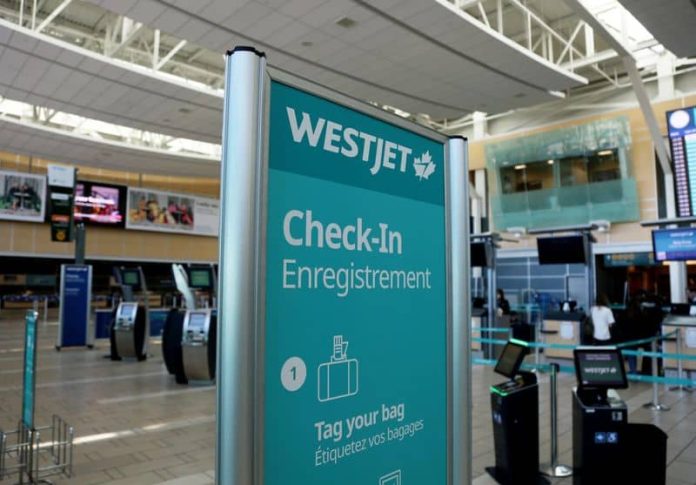MONTREAL (Reuters) – A faceoff this week between WestJet Airlines and its pilots over pay could set the stage for aviators’ demands in future bargaining with Air Canada.
Pilots at Onex Corp-owned WestJet gave notice on Monday that they could go on strike as early as Friday, raising fears of travel disruptions during Canada’s Victoria Day holiday weekend.
On Thursday, WestJet said it had already cancelled its flights in anticipation of the strike. The airline said it remained at the bargaining table with the pilots but was ready to “weather labour action for as long as it takes to arrive at a reasonable outcome.”
It would be the first major pilots’ strike in Canada since 1998, according to a spokesperson for Canada’s Labor Minister Seamus O’Regan, who is at the talks.
For both sides, pay remains a hurdle. While WestJet is pricing salaries to the Canadian market, their aviators represented by the Air Line Pilots Association (ALPA) want to capitalize on U.S. gains, following a recent deal with Delta Air Lines (NYSE:DAL) that delivers a 34% pay increase over four years.
Air Canada’s estimated 4,500 pilots who joined ALPA this week are not currently in negotiations, but could kick off bargaining this summer before the end of a decade-long agreement reached in 2014 with Canada’s largest carrier.
ALPA president Jason Ambrosi recently told Reuters that a key priority is to narrow the pay gap between Air Canada pilots and their U.S. counterparts, echoing the union’s demand for a “North American” contract at WestJet.
“It’s going to be on AC’s desk real soon,” said John Gradek, a faculty lecturer in aviation management at McGill University in Montreal, referring to Air Canada.
Gradek added there is a group of Air Canada pilots “who have been chomping at the bit” to get a significant bump in wages.
Montreal-based Air Canada has said it is premature to discuss the timing of talks, pointing out it has a collective agreement in force with its pilots for up to 10 years.
The carrier, hit hard by Canadian lockdowns during COVID-19, is now growing capacity to meet robust demand for travel.
Air Canada pilots, who have received a 2% wage increase per year since 2014, have complained Delta’s latest hourly pay rates are up to 45% higher.
Some industry analysts argue it will be tough to price salaries similarly for the two markets, due to Canada’s high taxes and fees and a sparse population.
“It’s a much tougher place to make money,” said aviation consultant Mike Boyd.
While there are differences between Air Canada and the U.S. legacy carriers, pilots tend to believe there should be pay parity across the board, said TD Cowen analyst Helane Becker.
“Pilots across the board believe they are underpaid relative to the job they do,” she said.




















